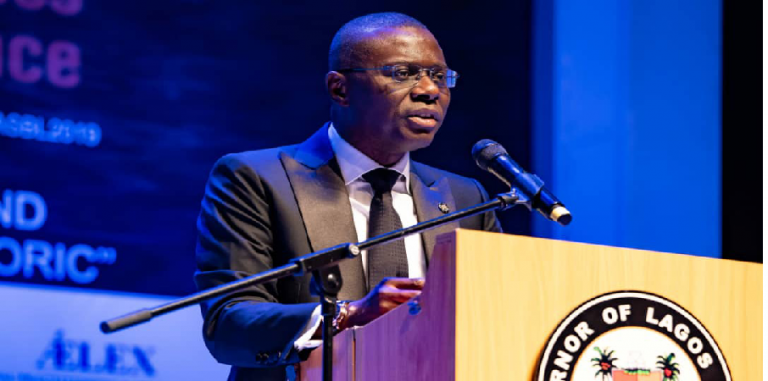
Governor Babajide Sanwo-Olu has presented the Lagos State’s fiscal plan for 2024, a robust N2.246 trillion budget tagged “Budget of Renewal,” emphasizing a strategic allocation towards capital expenditure during the presentation at the State House of Assembly.
The governor outlined the budget’s key components, delineating a substantial N1.22 trillion designated for capital expenditure, constituting 54.4% of the total budget. Recurrent expenses for the fiscal year were pegged at N1.02 trillion, encompassing overhead costs, personnel expenses, and recurrent debt service.
Highlighting revenue projections, Governor Sanwo-Olu indicated that the state anticipates a total revenue intake of N1.847 trillion for the year 2024. This projected income includes an estimate of N1.251 trillion from Internally Generated Revenue (IGR) and an expected allocation of N596.62 billion from the Federal Accounts Allocation Committee (FAAC).
Register for Tekedia Mini-MBA edition 19 (Feb 9 – May 2, 2026): big discounts for early bird.
Tekedia AI in Business Masterclass opens registrations.
Join Tekedia Capital Syndicate and co-invest in great global startups.
Register for Tekedia AI Lab: From Technical Design to Deployment (next edition begins Jan 24 2026).
Reflecting on the challenges of the preceding year, the governor acknowledged the hurdles posed by record inflation and the subsequent strain on living costs. However, he articulated that these difficulties serve as catalysts for opportunities, lauding the achievements of his administration across diverse sectors such as infrastructure, healthcare, education, and transportation.
Governor Sanwo-Olu also provided insights into the performance of the 2023 budget, indicating an impressive implementation rate of 78%, with capital expenditure recording an 80% accomplishment. He underscored the collaborative efforts between the state and federal governments, particularly in transportation and poverty alleviation, aimed at mitigating the effects of fuel subsidy removal on Lagos residents.
“We are actively collaborating with the Federal Government to implement relief measures, easing the burden of subsidy removal and high inflation experienced by the people of Lagos State,” affirmed Governor Sanwo-Olu during his presentation.
Expressing specific concerns about escalating transportation and food costs, the governor pledged the state’s commitment to aligning with the Federal Government’s targeted Food Security initiatives in 2024. Additionally, he confirmed the state’s full participation in the Federal Government’s initiative involving Compressed Natural Gas (CNG)-powered buses, a move intended to bolster public transportation with a substantial influx of these eco-friendly vehicles.
Lagos, in a league of her own
Lagos State has consistently presented the highest budgets among Nigerian states due to its economic significance and substantial Internally Generated Revenue (IGR). Comparing the state’s budget to other states’ budgets in Nigeria provides insights into the disparities in economic capacity and priorities across the regions.
For instance, Lagos State’s proposed budget of N2.246 trillion for the 2024 fiscal year places it far ahead of other states in terms of budgetary allocations. To provide a comparative view, we look at the budgets of other economically buoyant states in the country.
Rivers State: Rivers State is among the states with relatively high budgets after Lagos. For instance, for the 2024 budget, Rivers State presented N800 billion dubbed “The Budget of Renewed Hope.”
Akwa Ibom State: Akwa Ibom, another oil-rich state, typically presents substantial budgets, but they usually fall significantly below Lagos. In 2024, the state’s budget was approximately N845.632 billion.
Delta State: Delta State’s budget for 2024 stood at N714 billion, reflecting its significant economic activities as an oil-producing state but notably lower than Lagos.
Kano State: Kano, one of Nigeria’s most populous states, presented a budget of N350bn for 2024, significantly smaller compared to Lagos.
The disparity in budget sizes between Lagos State and other states in Nigeria can largely be attributed to Lagos’s status as the commercial nerve center of the country, with a higher IGR, more diverse economic activities, and a larger population.
It’s crucial to note that the specific figures can vary annually due to several factors including changes in revenue generation, federal allocations, infrastructure needs, and government priorities. However, Lagos State consistently maintains a significantly larger budget compared to other states, reflecting its economic prominence within Nigeria.



